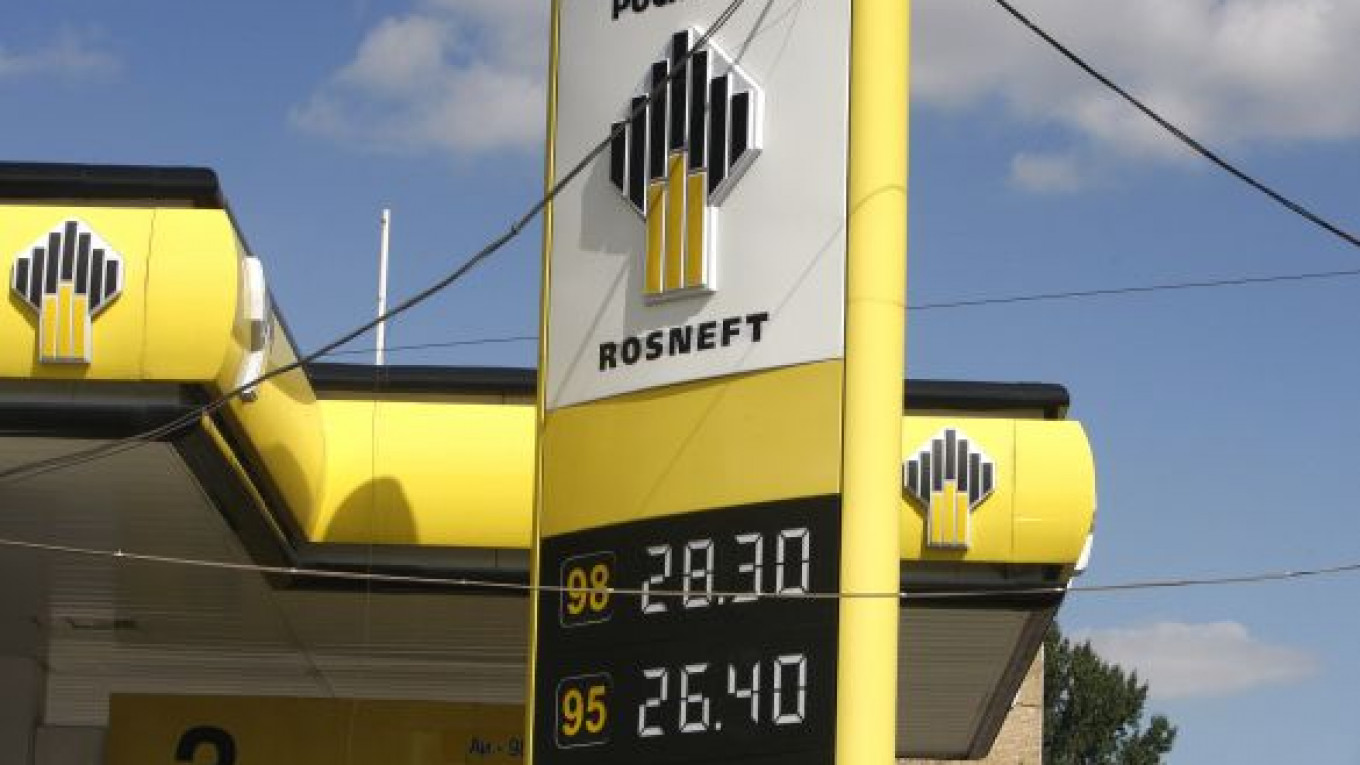Rosneft signed a $300 million agreement with U.S. energy giant ExxonMobil to assess the possibility of commercial production of Siberian tight oil, opening up access to geological formations that could yield billions of barrels of crude.
A joint venture will be established between the two companies to carry out the feasibility study across 23 license blocks covering 10,000 square kilometers in western Siberia, according to an e-mailed statement Friday from Rosneft. Rosneft will control a 51 percent stake.
Exploratory drilling will begin in 2013. If the results are positive, commercial production of tight oil, a form of crude locked in shale deposits several kilometers below the Earth's surface, is slated to start in 2015.
The agreement is part of a broader strategic partnership between Rosneft and ExxonMobil that was signed in August 2011 and includes cooperation on Russia's Arctic shelf and Rosneft's entry into an ExxonMobil tight-oil operation in Texas. Besides its considerable technical expertise, ExxonMobil will commit $300 million to the Siberian tight-oil pilot project.
The Bazhenov and Achimov shale formations in western Siberia, where the pilot program will go ahead, are expected to hold huge volumes of crude. Rosneft has estimated the potential yield of its Siberian tight-oil licenses at between 15 billion and 20 billion barrels of crude.
The agreement between the two companies was signed in Irving, Texas, by Rosneft president Igor Sechin and ExxonMobil president Rex Tillerson.
"I am certain that our experience and infrastructure in western Siberia, coupled with the state-of-the-art technologies of our partner ExxonMobil, will allow us to begin developing large tight-oil reserves," said Sechin.
A new tax regime for the exploitation of unconventional oil reserves is expected to be approved by the Kremlin by the end of the year.
Successful exploitation of tight oil has helped boost U.S. crude production in recent years. The oil is accessed through a process known as hydraulic fracturing, or fracking, in which a mix of water and chemicals is pumped into the shale at high pressure to release the petroleum.
"Rosneft would be one of the largest beneficiaries of the potential ramp-up of unconventional oil production in Russia," Bank of America Merrill Lynch analysts wrote in a note to investors Thursday. "Initial exploration costs related to the search for tight-oil deposits will be carried by its foreign strategic partners."
Law firm Akin Gump Strauss Hauer & Feld is advising ExxonMobil on the tight-oil project with Rosneft.
Related articles:
A Message from The Moscow Times:
Dear readers,
We are facing unprecedented challenges. Russia's Prosecutor General's Office has designated The Moscow Times as an "undesirable" organization, criminalizing our work and putting our staff at risk of prosecution. This follows our earlier unjust labeling as a "foreign agent."
These actions are direct attempts to silence independent journalism in Russia. The authorities claim our work "discredits the decisions of the Russian leadership." We see things differently: we strive to provide accurate, unbiased reporting on Russia.
We, the journalists of The Moscow Times, refuse to be silenced. But to continue our work, we need your help.
Your support, no matter how small, makes a world of difference. If you can, please support us monthly starting from just $2. It's quick to set up, and every contribution makes a significant impact.
By supporting The Moscow Times, you're defending open, independent journalism in the face of repression. Thank you for standing with us.
Remind me later.


